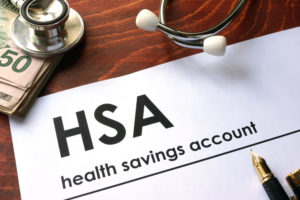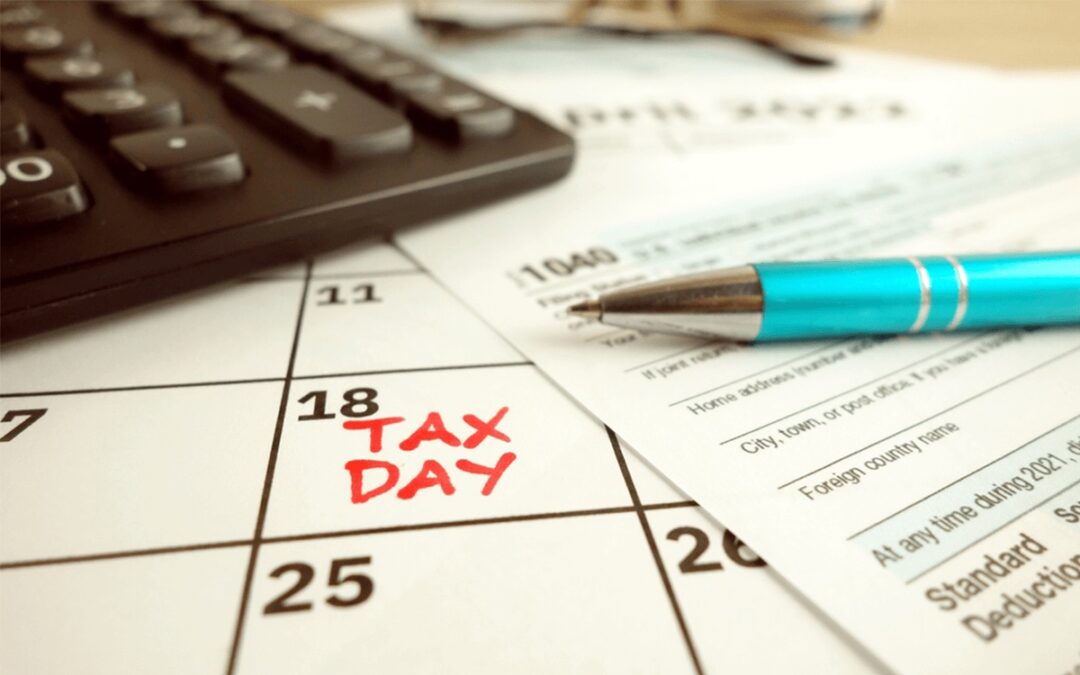Tax Day is right around the corner, but I’m already looking ahead to 2023.
The tax tips Money & Markets Research Analyst Matt Clark and I highlight below can help you sock away more for your retirement as April 18 creeps closer.
But to see how powerful tools like health savings accounts (HSAs) can be, you have to start early.
See how you can start protecting more of your hard-earned income now — and for the future — in this week’s Investing With Charles.
Here are some of the highlights from my conversation about tax tips with Matt.
What You Can Still Do for Your 2021 Taxes
Charles: If you have not done so already, you can contribute to an individual retirement account (IRA).
If you already have access to a 401(k) at your company, this is tricky. But, depending on your situation, you may still be able to put some money into an IRA and at least save a little.
[Click here to read about the ins and outs of IRAs and Roth IRAs.]
HSAs Are Powerful Tax-Saving Tools
 Charles: An underappreciated way to save on taxes is the health savings account (HSA).
Charles: An underappreciated way to save on taxes is the health savings account (HSA).
This is a Charles Sizemore original. I call an HSA a “spillover IRA.”
Why do I call it that? If you’ve already maxed out your IRA, your 401(k), all of your usual alphabet soup of retirement accounts, and you still want to put more money away to get that tax break, the HSA is a solid option.
HSAs and IRAs are not interchangeable. But depending on how you structure it and how you use it, you can make an HSA a de facto IRA.
Let’s consider the rules.
When you put money into an IRA, you can’t touch it without taking a penalty until you are age 59 and a half.
The HSA is different.
If you put money into an HSA, you can take it out tomorrow for health expenses. Use it for any purpose other than health expenses, and you’ll pay a penalty and taxes.
The exception is if you wait until you’re at least 65.
Why not 59 and a half like the IRA?
Once you qualify for Medicare, you don’t need the HSA anymore. So the IRS allows you to just take the money out like you would an IRA.
At the end of the day, if you want to get as much money out of the taxman’s hands as possible, an HSA is a solid option.
[Note: You can still contribute to an HSA for tax year 2021 until April 18, 2022.]
HSA Breakdown
Matt: I know there are limits in terms of contributions to each one of these. Roth contributions are limited to $6,000 per person or $7,000 if you’re over the age of 50.
Your HSA, or spillover IRA, is limited to $3,600 for individual insurance and $7,200 for a family plan.
Charles: That also brings up another point. In order to contribute to an HSA plan, you have to have a high-deductible health insurance policy tied to it. These days, pretty well everybody has a high-deductible plan. That’s just the market written out.
Talk to your human resources department or your insurance representative if you are self-employed or lack an HR department to go to. They can tell you whether or not the plan that you’re currently in allows for an HSA. If it does, it’s a nice last-minute way to save on your taxes.
Tax Tips for the Gig Economy
Matt: Now, let’s talk about the gig economy that we’re in. I’m talking about the millions of Americans working from home, having side hustles, driving for Uber, Lyft or DoorDash. All these other types of independent contractor-type jobs that are secondary to your primary source of income.
How do the tax rules apply to that kind of work?
Charles: There’s good and there’s bad.
The bad is that when you’re getting 1099 income or side hustle income or whatever, you aren’t withholding on that. So you have to plan ahead.
Ideally, you’re making quarterly estimates to the IRS. At the bare minimum, you’re putting some money away in an account, ready to pay out, because that can be a nasty surprise at the end of the year for a lot of people. That’s the bad.
The good is: Oh, my, goodness, the things you have at your disposal as a self-employed person are incredible. You have this whole new suite of options available to you for retirement planning, with much higher limits. You could do a SEP-IRA, or a solo or individual 401(k). And that last one isn’t limited by your employer plan.
A Final Tax Tip
Matt: I know that the time to work on 2021 taxes is pretty well over.
But looking ahead now to tax year 2022 and even beyond, now’s the time to really set those things in place.
Is there anything else that people need to be aware of? I don’t want to encourage you to get out of taxes. But we all want to try to reduce that tax burden.
Charles: It’s OK to look for ways to legally reduce your tax bill. Obviously, don’t do anything dodgy. The IRS makes rules, and they expect you to follow them.
But if you follow the rules, you can save yourself a boatload in taxes.
I would say this. The best time to plan is, of course, yesterday. You should always be planning ahead. But if you haven’t yet, it isn’t too late.
If you had side hustle income, you still can shelter part of that with a SEP-IRA, for example. It’s not too late for that.
If you have access to an HSA account, you can still put money into that.
Bottom line: Start tax planning and saving early. It doesn’t all come out of your checking account in one big check. Make a plan for the next 12 months so you aren’t caught off guard when Tax Day rolls around again in 2023.
Where to Find Us
Coming up this week, Matt will have more on The Bull & The Bear podcast, so stay tuned.  Don’t forget to check out our Ask Adam Anything video series, where Chief Investment Strategist Adam O’Dell answers your questions.
Don’t forget to check out our Ask Adam Anything video series, where Chief Investment Strategist Adam O’Dell answers your questions.
You can also catch Matt every week on his Marijuana Market Update. If you are into cannabis investing, you don’t want to miss Matt’s weekly insights.
Remember, you can email my team and me at Feedback@MoneyandMarkets.com — or leave a comment on YouTube. We love to hear from you! We may even feature your question or comment in a future edition of Investing With Charles.
To safe profits,
Charles Sizemore, Co-Editor, Green Zone Fortunes
Charles Sizemore is the co-editor of Green Zone Fortunes and specializes in income and retirement topics. He is also a frequent guest on CNBC, Bloomberg and Fox Business.






